Archiv článků
Prohlédněte si všechny články a objevte více zajímavých témat!
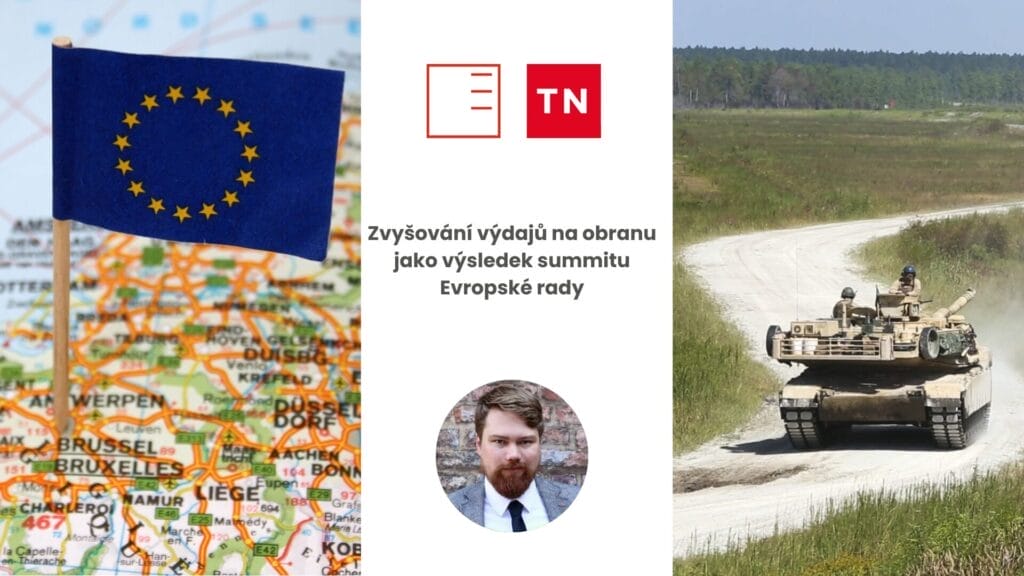
Televizní noviny | Zvyšování výdajů na obranu jako výsledek summitu Evropské rady
Čtvrteční summit lídrů členských států EU vyústil v jednomyslnou shodu ohledně nutnosti prioritizovat bezpečnost. Pro Televizní noviny komentoval výkonný ředitel Institutu EUROPEUM Martin Vokálek.
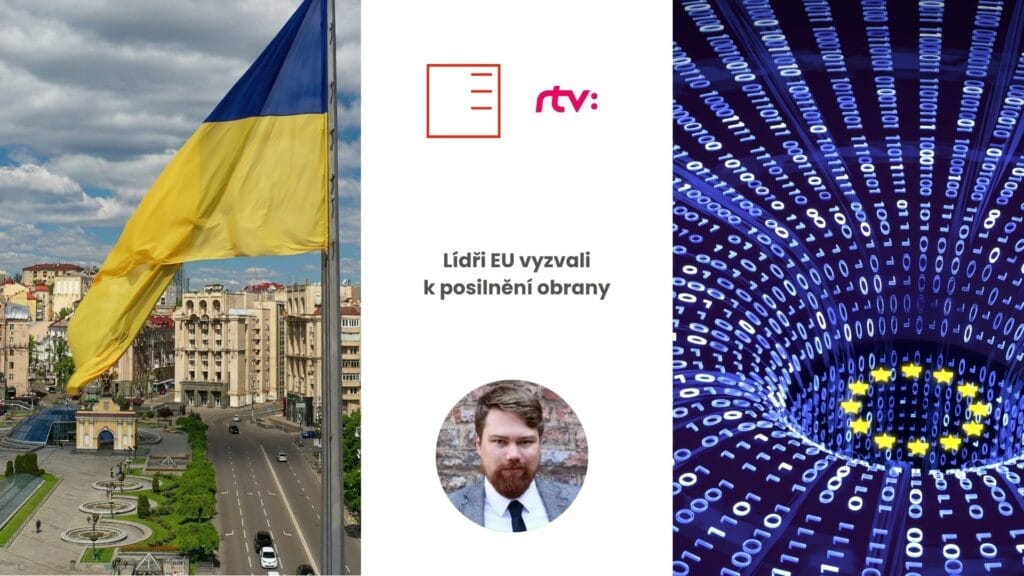
STVR | Lídři EU vyzvali k posilnění obrany
Rozhodnutí zvýšit výdaje na obranu je průlomové. Summit se věnoval tomu, jak posílit obranyschopnost Evropské Unie a jak dále řešit podporu Ukrajiny. V posledních letech Evropa trochu naivně spoléhala na USA v rámci NATO jako na garanta bezpečnosti. Pro STVR komentoval Martin Vokálek, výkonný ředitel Institutu EUROPEUM.
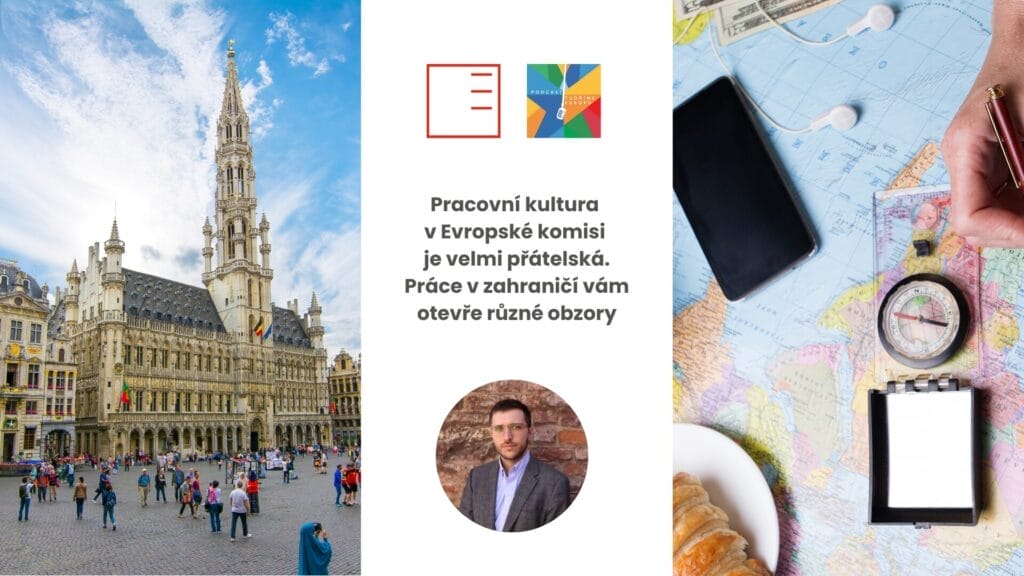
Tvoříme Evropu | Pracovní kultura v Evropské komisi je velmi přátelská. Práce v zahraničí vám otevře různé obzory
Povědomí o Evropské unii je pořád nedostatečné a menší, než by mělo být. Mínění je odrazem toho, kolik toho o EU víme. V podcastu Tvoříme Evropu vystoupil analytik Institutu EUROPEUM Filip Křenek.
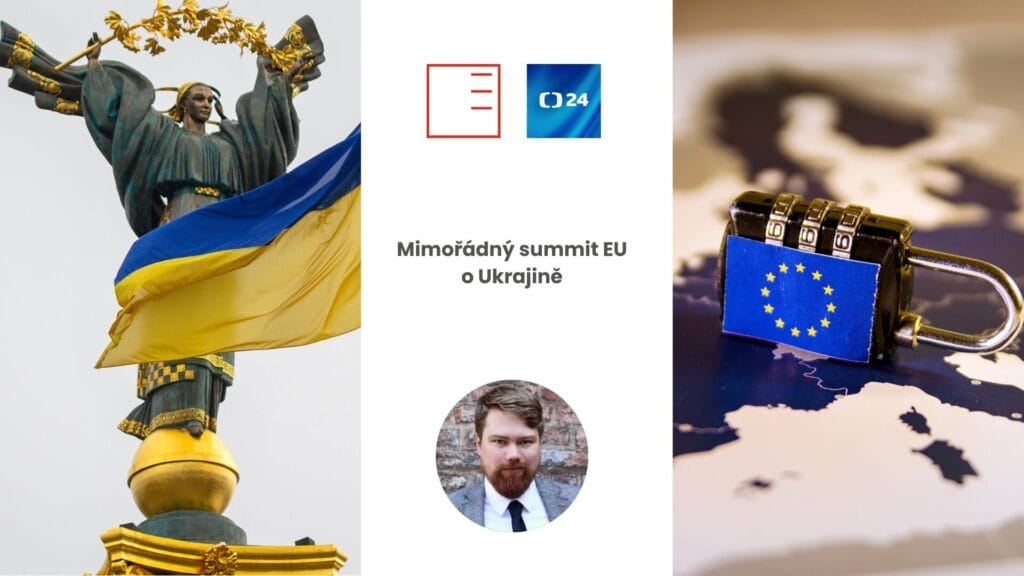
ČT24 | Mimořádný summit EU o Ukrajině
Závěry ohledně podpory Ukrajiny byly přijaty bez Maďarska, nejedná se tedy o závěry celéhoho summitu Evropské rady. Záměr podporovat Ukrajinu a poskytovat jí bezpečnostní záruky deklarovalo 26 zástupců členských států. Pro ČT24 komentoval výkonný ředitel Institutu EUROPEUM Martin Vokálek
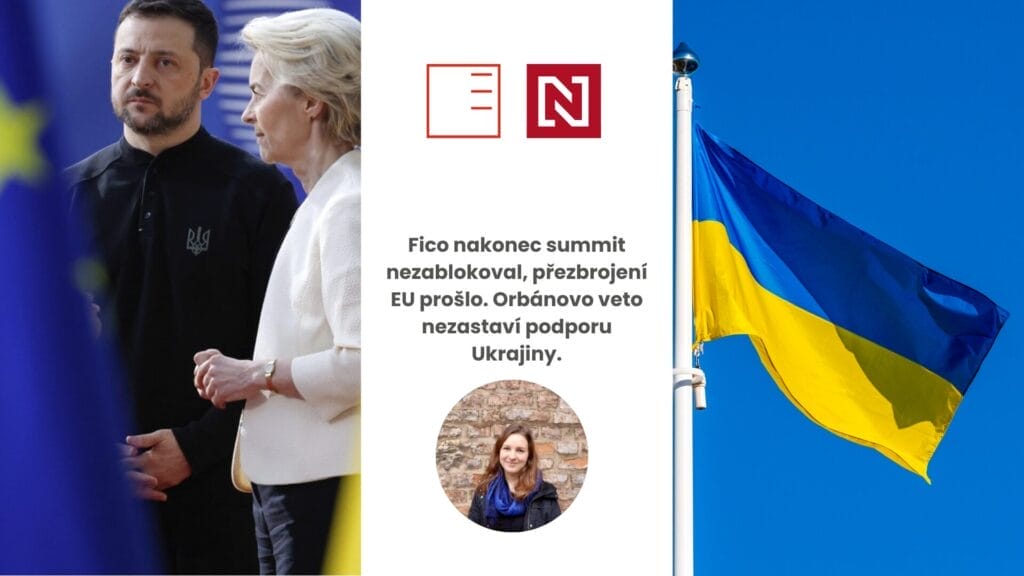
Denník N | Fico nakonec summit nezablokoval, přezbrojení EU prošlo. Orbánovo veto nezastaví podporu Ukrajiny.
Summit měl dvě části: pro přezbrojení EU hlasovali všichni, další pomoc Ukrajině vetovalo Maďarsko. Robert Fico hlasoval pro, přestože jeho požadavek na výzvu k tranzitu plynu byl nakonec oslaben. Komentuje expertka na Evropskou unii z institutu EUROPEUM a Karlovy univerzity v Praze Zuzana Krulichová.
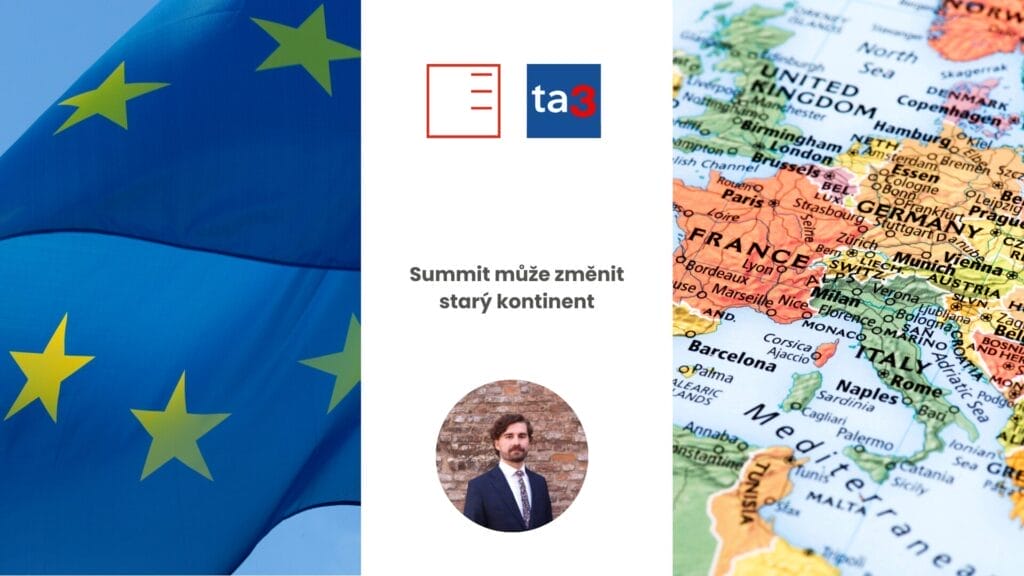
TA3 | Summit může změnit starý kontinent
V Bruselu začne mimořádný summit EU, který se bude zabývat bezpečností Ukrajiny a Evropy. Pro ČT24 komentoval zástupce ředitele Institutu EUROPEUM Viktor Daněk.
Mimořádný summit EU okomentoval pro slovenskou televizi TA3 zástupce ředitele Institutu EUROPEUM Viktor Daněk.
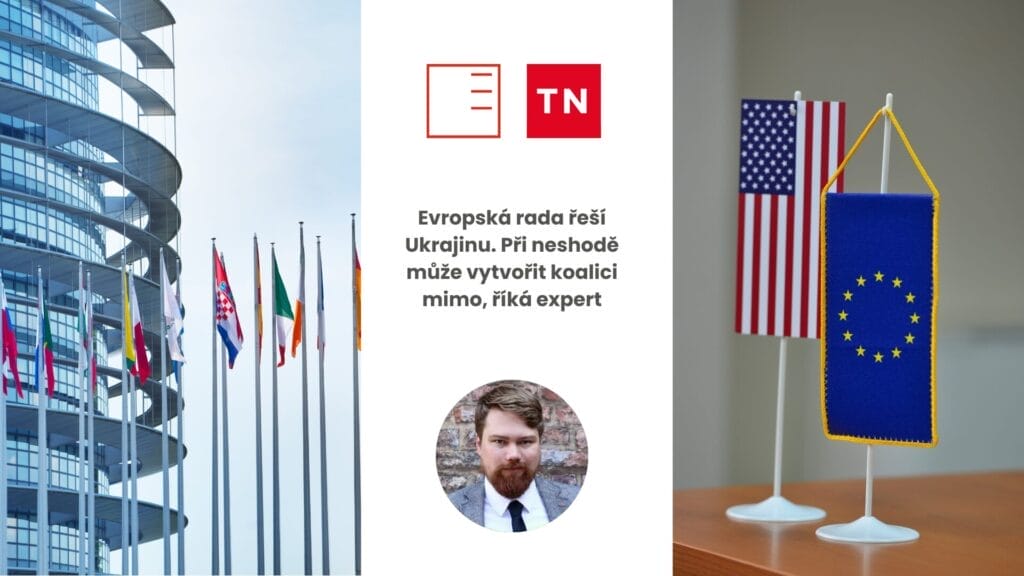
TN Live | Evropská rada řeší Ukrajinu. Při neshodě může vytvořit koalici mimo, říká expert
V Bruselu se ve čtvrtek sešli lídři 27 zemí Evropské unie a na místo dorazil také ukrajinský prezident Volodymyr Zelenskyj. Tématy jsou pomoc Ukrajině a obrana Evropy. Téma rozebral výkonný ředitel institutu EUROPEUM Martin Vokálek.
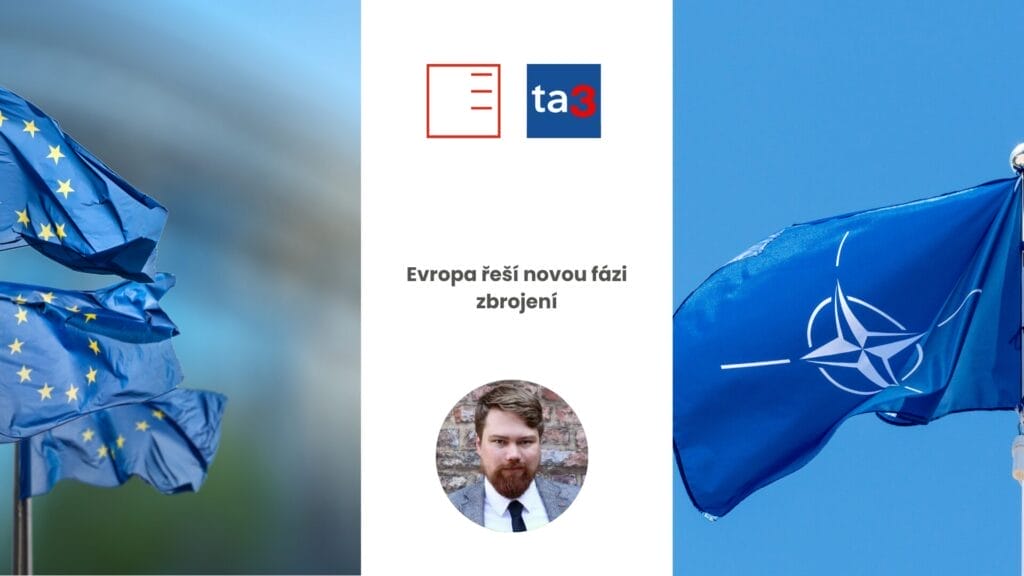
TA3 | Evropa řeší novou fázi zbrojení
Situaci kolem "nové éry" zbrojení Evropské unie komentoval pro slovenskou televizi TA3 ředitel Institutu EUROPEUM Martin Vokálek.
.
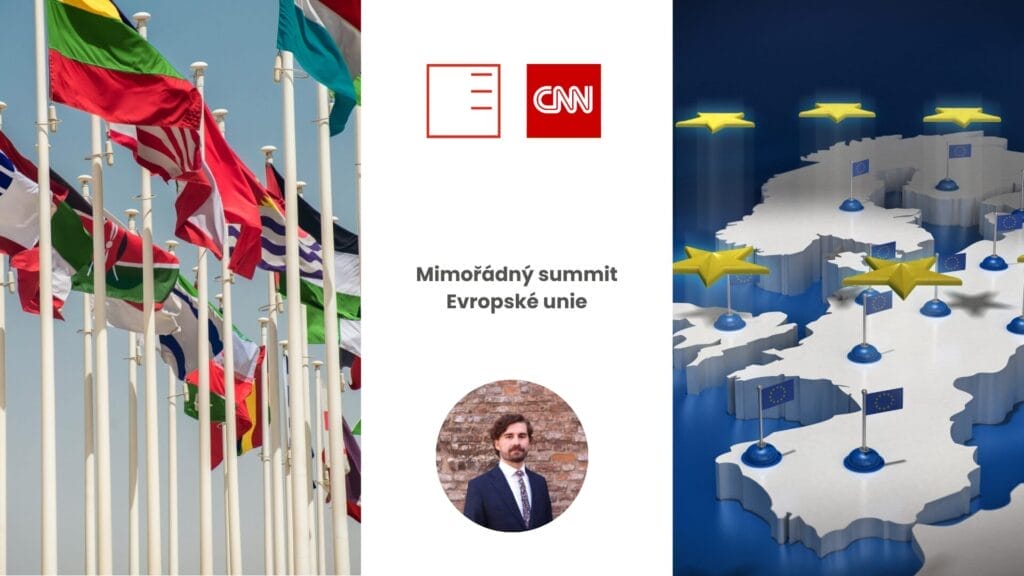
CNN Prima News | Mimořádný summit Evropské unie
Poslední vývoj v Evropě pro CNN Prima News okomentoval zástupce ředitele Institutu EUROPEUM Viktor Daněk.
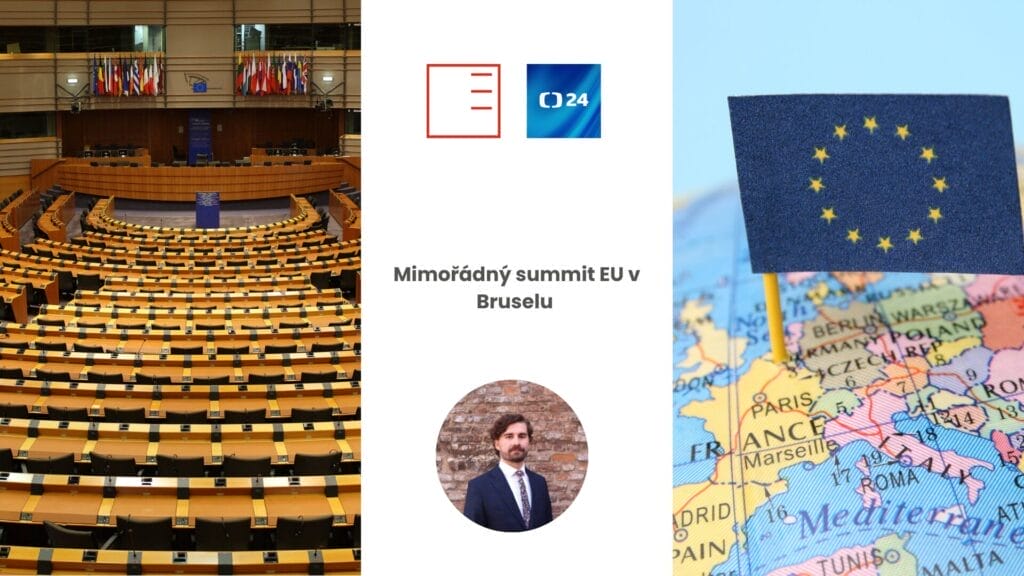
ČT24 | Mimořádný summit EU v Bruselu
V Bruselu začne mimořádný summit EU, který se bude zabývat bezpečností Ukrajiny a Evropy. Pro ČT24 komentoval zástupce ředitele Institutu EUROPEUM Viktor Daněk.
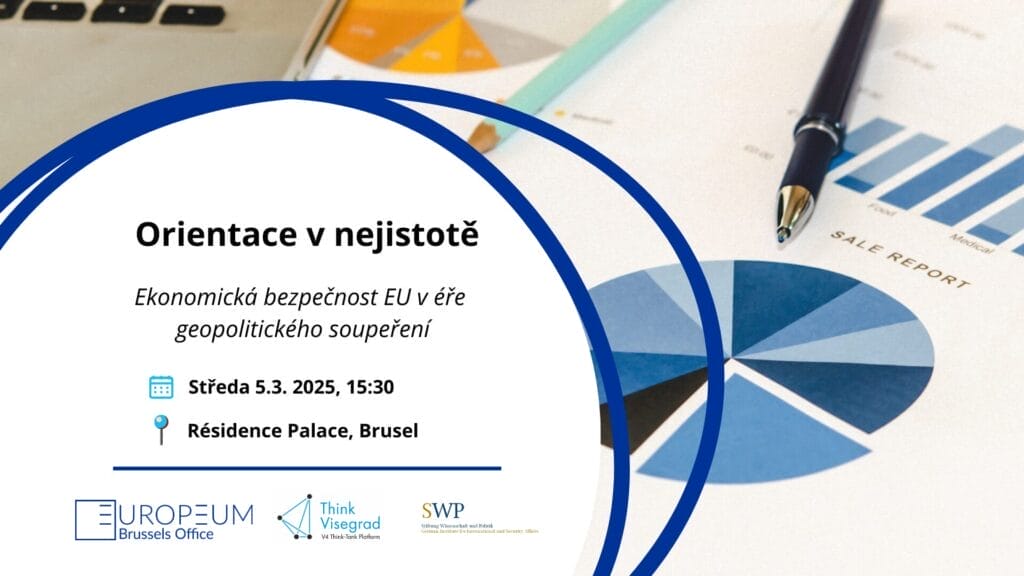
Kulatý stůl: Orientace v nejistotě - ekonomická bezpečnost EU v éře geopolitického soupeření
Bruselská kancelář EUROPEUM a Stiftung Wissenschaft und Politik vás zvou na odbornou diskusi pod záštitou Think Visegrad Platform o budoucnosti ekonomické bezpečnosti EU ve stále nestabilnějším globálním prostředí.
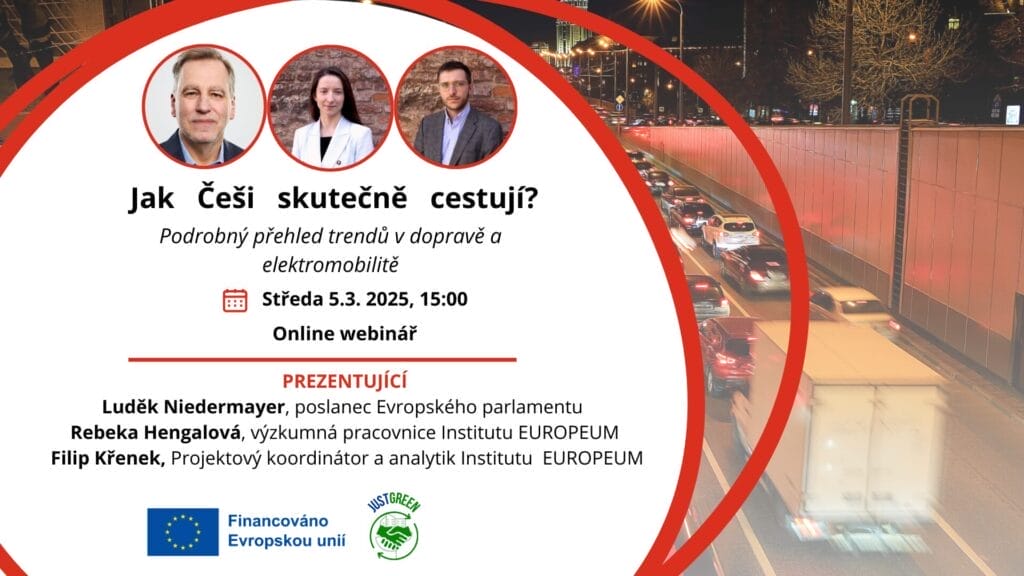
Webinář: Jak Češi skutečně cestují?
Co skutečně ovlivňuje výběr dopravního prostředku? Jak Češi nejraději cestují a co jim brání v přechodu na elektromobily? Připojte se k nám na JustGreen webinář kde představíme čerstvá data o návycích české mobility.